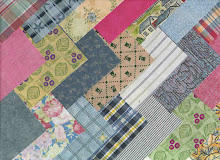You would of thought that the problem of getting rid of waste was fairly simple. Over the last three and a half years, I have found it increasingly complex. Not because of the nature of things but the diversity of the materials we casually throw away each day, not just individuals but homes, shops, offices, manufacturing and industry. Even the growing of food has its waste products.
Never before in our history has it been so important to address these issues in a sensible, almost holistic way. We are in a position, where the future of the world lay’s in a delicate balance. Global warming, Carbon footprints, or even going ‘Green’ or ‘Eco’ are bantered around in a blasé fashion. We all are aware of them but do we really know the true issues or consequences of the effect.
Great swathes of ‘middle England’ buy into the Green machine that governments, politicians and industry have worked long and hard to push before us. We are bombarded by the media industry with sound bites, photo opportunities, spin and news. Rallying us into a blind mass, aware of the subject but lacking the knowledge, doing something about it but missing the truth.
Let’s give an instance;
The recycling of plastic; Trying to do our bit we take plastic (carefully collected) to the skip, (conveniently paced in the supermarket car park) putting it in the a warm glow of Eco spin that says we are saving the planet. In actual fact there are 7 types of plastic that have the potential of being recycled but to date there are only 2 that can readily be reclaimed. The reality is that the righteous person only needs to place one incorrect tub or bottle in to invalidate the complete skips recycling potential, resulting not reclamation but landfill or (increasingly) being incinerated, the ash land filled and the air polluted. It only takes one bottle to have been correctly sorted and disposed but unwashed and covered with say food stuff to do the same.
Never has the adage ‘A little knowledge is dangerous’ be so true!
Modern living and industry have made us aspirational and wasteful beyond our means. Politicians, in there bid to address the problem, have been complicit in attacking the symptom and not addressing the cause.
Many of the so called developed countries compound the hype for wanting more! And yet it was only a few generations in the past where we were glad for the roof over our head, clothing on our back and food in our belly. Renewing our acquaintance with friends, and community on a daily basis. We sat to share food around a table and talk of our day, our concerns and reaffirm our family bond. Our wish list might of contained a new pair of shoes, a reading book, or a wheelbarrow to help us grow food, We wasted nothing because we had to deal with our own waste, burying it in our own garden or burning it on our fire.
I would be one of the first to agree it was a very hard existence and I would not want to return. I like my computer or the fact I can speak to family on the other side of the world. I have other things to fill my time, than spending two or three days washing clothes!
But the world cannot go on the way it has. We can not use resources without a thought of where it comes from or will we have more tomorrow. On a personal level I question the source of anything to pass my threshold. Has it been used till all value is gone, will it recycle, or compost? I may not be perfect, I live on a very small fixed income. I cannot buy into green, organic, spin I so readily seen in the supermarkets on a daily basis. But I only want a roof over my head, clothes on my back and food in my belly and perhaps good health would be added to the list. My wish list is a wheelbarrow to help me grow food, some insulation to keep us warmer next winter and per haps solar power to reduce our dependence on electricity.
Subscribe to:
Post Comments (Atom)




No comments:
Post a Comment